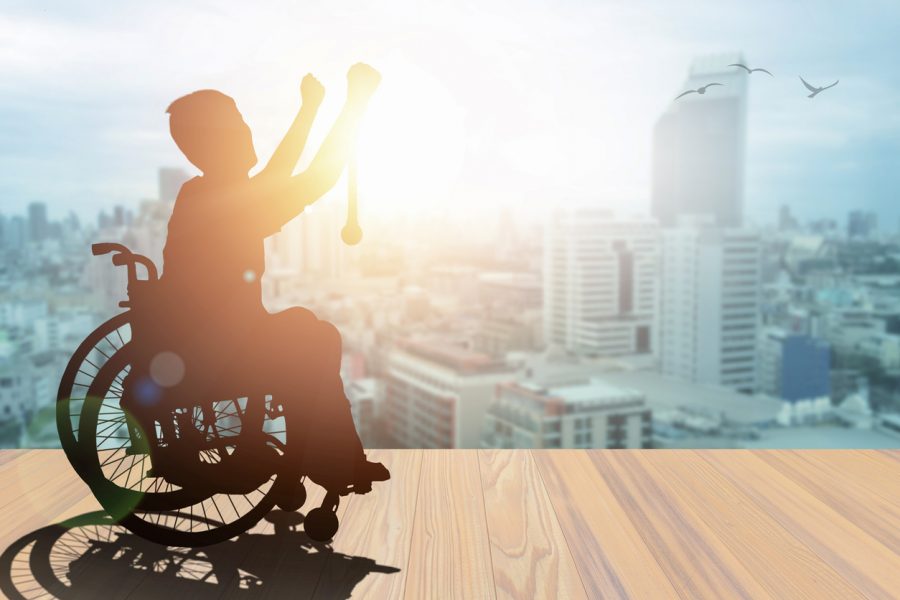
People with disabilities in India left behind amid COVID-19 crisis
While people from all sections of society—migrant workers, farmers, small businessmen, employees from the middle class and so on—are focused on the race for survival triggered by the COVID-19 pandemic, one portion of the living population has been kept on the backburner amid the current struggle — people with disabilities.

While people from all sections of society—migrant workers, farmers, small businessmen, employees from the middle class and so on—are focused on the race for survival triggered by the COVID-19 pandemic, one portion of the living population has been kept on the backburner amid the current struggle — people with disabilities.
A report by the National Centre for Promotion of Employment for Disabled People (NCPEDP) titled ‘Locked Down and Left Behind’ explains the difficulties faced by persons with disabilities and the ways they could be helped out.
A survey conducted for more than 1,000 people with disabilities (of which 73 percent were males and 27 percent females) by the NCPEDP found that more than 73 percent of them were facing several difficulties due the lockdown even with their most basic needs.
Out of the 1,067 participants in the survey, 201 people across India were interviewed. The interviews revealed that 67 percent of the 201 people had no access to doorstep delivery of essentials, and only 22 percent did.
Approximately 48 percent of them did not have access to a government helpline, and 63 percent had not received the financial assistance for persons with disabilities which was assured by the Finance Ministry.
Related news | Persons with disabilities bear the brunt of coronavirus lockdown
A resident named Pradeep* said he was unable to get hold of medical essentials like urobags, catheters, and CIC pipes. He also said he had called up the emergency number 112 to receive medical equipment, to which they had allegedly replied that he should ask his neighbour for help.
Moin*, another disabled person, said he had no access to medical treatment where he lived, and that he had to travel 40 km to Ahmedabad to get his ear treated.
Santosh*, who lived in a remote area and was one among those affected, said he had not received anything as part of the relief measures announced by the government, and claimed the government grassroots worker “did not want to come to such a remote area.”
These are just a few examples of the issues people face during the lockdown.
It was found through the survey that a slew of measures were announced by the Centre specifically for persons with disabilities to ensure their well-being during the lockdown, but the implementation of these rules has been flawed and inconsistent across the country.
The ‘Comprehensive Disability Inclusive Guidelines’ issued by the central government’s Department of Empowerment of Persons with Disabilities (DEPwD) focuses mainly on the ways to help people with disabilities.
Related news | No mention in Union Budget, people with disabilities feel neglected
The guidelines by the DEPwD stated that it must be ensured that persons with disabilities are given access to essential food, water, medicine, and, to the extent possible, “such items should be delivered at their residence or place where they have been quarantined.”
They also mentioned that caregivers should be allowed to visit persons with disabilities by exempting them from restrictions during the lockdown or providing passes “in a simplified manner on priority”.
The rules also stated that continuation of support services for persons with disabilities with minimum human contact should be ensured.
“All information about COVID-19 should be available in simple and local language in accessible formats, and a 24*7 Helpline number at the state level should be set up exclusively for persons with disabilities with facilities of sign language interpretation and video calling,” the guidelines noted.
A few states have already implemented these guidelines to a certain extent, but most have not.
Kerala has directed local self-governments to take special care of persons with disabilities by establishing common kitchens where cooked food is served, while dry rations are provided to those who cannot travel to these common kitchens.
Related news | Rape of disabled minor: Five get life imprisonment in Tamil Nadu
The state government has also released pension dues and made advance payments to help disabled people cope with the current crisis, and also ensured that students with disabilities receive 5000 rupees ex gratia payment.
Meanwhile, Tamil Nadu has launched a helpline for persons with disabilities catering to people from state to the district level.
Indian sign language interpreters are also available to cater to people who are deaf.
Doorstep medical services like fixing/changing catheters have been enabled by the Tamil Nadu State Disability Commissioner. The report noted that doorstep personal physical therapy has also been enabled.
Nagaland has included Indian sign language interpretation in their daily briefing on COVID-19 updates in the state. A helpline for people with disabilities has also been set up, and a separate number for WhatsApp video calls have been set up for persons who are deaf/hard of hearing.
In Assam, under the directive of the State Disability Commissioner, the State Disaster Management Authority (SDMA) has made videos with information on COVID-19 with Indian sign language interpretation and subtitles.
However, Arman Ali, Executive Director of the NCPEDP, sought the consistent implementation of these guidelines across the country to help as many people as possible. “There are more people with disabilities in India than the entire populations of Ireland, New Zealand, Austria, Uruguay and Kuwait. All the might and reach of the government is needed to provide relief to such vast numbers.
“The government must secure inclusive response and mitigation not just in the present crisis, but also in any subsequent wave that may well hit us sooner than we think,” he added.
*names changed to maintain anonymity

